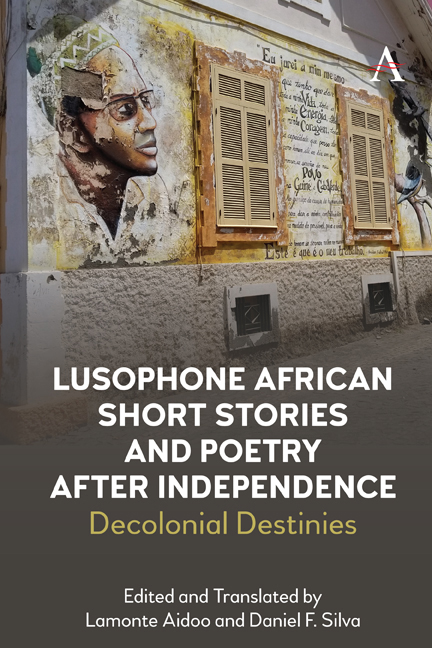Chapter 6 - Onésimo Silveira
Published online by Cambridge University Press: 23 February 2022
Summary
Introduction
Onésimo Silveira was born in 1935 in Mindelo, Cabo Verde, and has been a central figure in various and different stages of Cape Verdean literary and political history. After concluding his secondary education in Cabo Verde, he resided in China before studying at Uppsala University in Sweden. There, he established important links with Swedish parties as well as Norway's Labor Party in helping build political solidarity for the Partido Africano para a Independência da Guiné e Cabo Verde (African Party for the Independence of Guinea and Cabo Verde, PAIGC) during the 1960s as the armed struggle for independence from Portugal was underway in Guinea-Bissau, Angola, and Mozambique. In this regard, he served as a PAIGC ambassador in Scandinavia, also visiting Finland. Shortly before independence, he was expelled from the party, going on to work for the United Nations until the opening of multiparty politics in Cabo Verde in 1990. Toward the end of the decade, he formed the Partido de Trabalho e Solidariedade (Labor and Solidarity Party) after writing and publishing scathing critiques of the ruling party, and publishing a critical reflection on democracy in Cabo Verde in 2005. In 2006, he left the party and was elected to parliament through the renamed PAICV, Partido Africano para a Independência de Cabo Verde (African Party for the Independence of Cabo Verde).
Throughout this time of political transition, of both Cabo Verde and Silveira himself, he wrote poetry, participating in crucial literary movements as both a writer and a literary critic. Silveira's literary works and critical reflections on Cape Verdean literature represent important continuities to the cultural politics of the famed Claridade literary circle formed in 1936 and composed of Cape Verdean writers and critics calling for aesthetic breaks from the Portuguese literary canon. In this sense, the movement and its legacies can be credited with proposing and spurring on a Cape Verdean literature grounded not in European aesthetics, but in linguistic, narrative, and representational forms that could complexly give meaning to the societal realities and cultural life of Cape Verdeans beyond a small literati.
- Type
- Chapter
- Information
- Lusophone African Short Stories and Poetry after IndependenceDecolonial Destinies, pp. 89 - 100Publisher: Anthem PressPrint publication year: 2021



